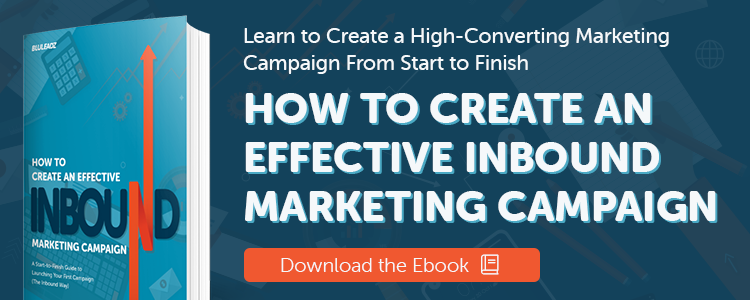Marketing is a crucial part of running a successful business. Yet, it is one of the areas companies can waste money more quickly than almost any other. How can one know which promotional efforts pay off and which should be abandoned for better practices?
While there are a few top marketing solutions nearly every brand uses, the best ones vary by industry and even campaign. Knowing who the target audience is and where they’re most likely to hang out is vital to planning a promotional calendar.
Why Should Businesses Invest in Marketing?
According to the Small Business Administration, approximately 33.2 million small businesses exist in the United States. While not all are direct competitors, a company competes for attention against everyone. People only have a limited number of hours to view ads, visit websites, and seek information. If a brand doesn't stand out from other companies, they risk losing users to someone else.
Sure, one could hope a business model speaks for itself. Still, how will customers hear about the brand in the first place if some marketing methods aren’t embraced? Make a marketing budget count by looking at some of the top marketing solutions that bring results.
How to Use Marketing Solutions for Growth
1. Get Social.
Most businesses benefit from some type of social media marketing plan. Once a brand knows who their typical buyer is, they can create a buyer persona and figure out a lot of details about where they hang out online, which platforms they frequent and the right message to reach those customers.
Most social media advertising management platforms let business owners plug in some audience details, track results, and make adjustments on the fly. Over time, ads become more and more effective, reaching the target audience and encouraging action.
2. Implement a Loyalty Program.
Customer churn makes growth difficult for a business. If a company loses as many clients as it gains, things stagnate and efforts make zero progress. Brands can improve customer retention with loyalty programs and other efforts to put the customer first.
Tie word-of-mouth marketing to a loyalty program, for example. The more people customers refer, the more rewards they receive. When a customer recommends a business to someone they’re less likely to abandon the company when something new and shiny comes along. After all, they’ve put their name and reputation behind their recommendation.
3. Focus on Reoptimization.
Even if a company initially optimized their website for current SEO practices, Google and other browsers constantly change their algorithms. Pages may not rank high in search engine results pages (SERPs). Spend time reviewing the keywords the brand should rank for. Study which companies hit the top ranks on Google’s SERPs.
What makes other articles stand out and what is missing from the pages on the brand’s website that aren’t ranking well?
4. Send Emails.
Email is still a direct way to reach customers with a positive message. Email marketing isn’t an expensive promotional method, but it does require consistent effort and personalization. Study past email open rates, which links users clicked on, and what was most effective in driving new sales.
Greet subscribers by their first name. Segment the audience so the message is always on target for that group.
5. Make Videos.
Video shopping is the wave of the future. Around 20 percent of American adults claim to have bought something from a clickable video or through social media. Whether brands use a videographer or their smartphone for a budget video, adding this marketing method ups a company’s marketing reach.
Place videos on a company website, upload to YouTube or Vimeo, or add short reels to Facebook, Instagram, and TikTok. Make sure to select the right platform for the target audience and become familiar with what other creators put on there.
6. Repurpose Content.
Hiring writers and editors and paying for unique images adds up. One way companies can save on content marketing is by repurposing content they already have. Create an ebook based on a series of articles. Add them into a free guide people can download from the site. Expand on the most popular articles already in the repertoire.
Some companies take blog posts and create videos based on each topic. Others grab snippets and share tidbits on social media.
7. Team Up With Influencers.
The latest State of Influencer Marketing Benchmark Report estimated a growth to $16.4 billion, with ongoing growth in the digital marketing subcategory. Teaming up with influencers able to reach a specific audience segment expands a brand’s customer base and is quite cost effective.
Some influencers work in exchange for trying out a product, while others want to try the product and get a small fee. Figure out which influencers and micro influencers best meet the needs of a brand.
8. Leverage Paid Ads.
A few well-placed ads can ramp up website traffic and increase leads. Each platform has different requirements for advertising, so the marketing team should learn the ins and outs to make the most impact for the money.
Always be transparent and never try to trick consumers. People appreciate honesty and are much more likely to buy from and recommend brands that are upfront.
Marketing Is an Investment
How much a business should invest in marketing efforts depends on how well attempts work to reach objectives. Track return on investment to see what the brand should keep over time and when a brand should replace others. Studying analytics and trying the top solutions listed above grow businesses.


Eleanor Hecks
Eleanor Hecks is editor-in-chief at Designerly Magazine. She was the creative director at a prominent digital marketing agency prior to becoming a full-time freelance designer. Eleanor lives in Philadelphia with her husband and pup, Bear.